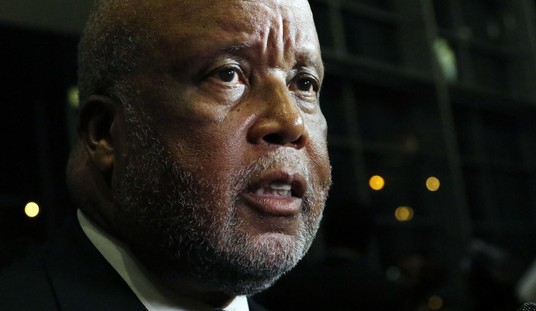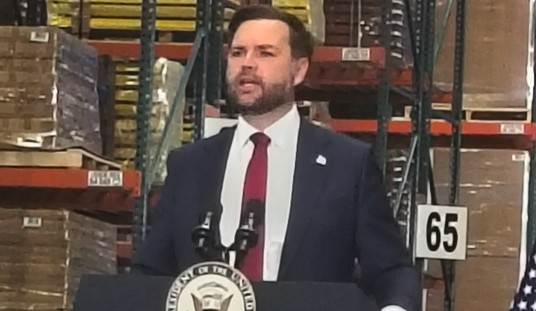There’s no experience quite like filling out quarterly estimated taxes for the first time. All of the mechanisms designed to make taxation as painless as a mosquito bite are disabled. You calculate a very sizable percentage of your income – fingers crossed that you’ve got enough salted away to cover it! – and write a big check to the government.
Of course, the people who pay taxes that way don’t just “cross their fingers” and hope they have the money to pay. They tend to be business owners, factoring tax liability into their monthly budgeting decisions… in precisely the way that most of us don’t. Our paycheck withholding is snatched away before we ever get to handle the money. For many Americans, Tax Day involves filling out the relatively simple 1040EZ form – a procedure so elementary that serious proposals have been made to automate it, giving the low-income taxpayer a chance to review a return generated by computer, using information already well-known to the government, sign the document if everything looks jake, and then just wait for that tax refund to roll in.
Which brings us to the absurdity of tax refunds – America’s annual celebration of remittance from the interest-free savings account Uncle Sam thoughtfully maintains for them. Thanks to refundable tax credits, people with zero actual tax liability can still get refunds, turning the government’s revenue system into another welfare delivery system.
Every Tax Day brings grumblings about the free riders – people with no “skin in the game,” who pay nothing (or less than nothing) into the bloated American government while enjoying its benefits. But in truth, there really aren’t that many “free riders.” That’s because all of us pay a huge amount of tax that we’re completely unaware of, passed invisibly along to us by corporations dragooned into service as tax-collecting janissaries. Layers of government burden are slathered across everything we buy.
Even more invisible taxation arrived through ObamaCare, whose inflated premiums are a thinly-disguised tax to maintain a system of redistribution. Dozens of more traditional taxes were packed into the bill, once again kept carefully hidden from the ultimate taxpayers by several levels of bureaucratic obfuscation. It is, for the time being, politically difficult to sell the Sainted Middle Class on taxes they would explicitly pay, but their tolerance for implicit taxation is virtually limitless – as long as they think someone else is getting soaked, they don’t notice the water rising past their knees.
Don’t worry – the explicit tax hikes are coming, once the nation’s debt crisis grows so dire that effective political resistance to higher taxes becomes impossible. When that day arrives, the people who “work hard and play by the rules” might feel a bit of resentment toward the liberals who assured them debt doesn’t matter, but their anger will be meaningless. Okay, you got skunked. Now dry your eyes, give up your car, cancel your cell phone, and pay up. It’s not as if Mama Government is going to let you starve.
Government is a product whose price and performance are hidden from the consumer. The politicization of the Census Bureau gives us another reason to distrust information the State provides about its performance. We all know the federal government’s finances could not survive even the most cursory independent audit, of the sort it routinely enforces upon private business entities. Why anyone thinks it’s wise to give a gigantic organization that couldn’t withstand an audit even more power, money, and responsibility is beyond me.
The most fundamental deception concerning the performance of the federal government is its refusal to submit a balanced budget, or indeed any budget at all. The government’s spending bears only the most tenuous connection to the amount of money We the People have agreed to provide it. This spending creates obligations that roll forward, year after year, growing steadily larger under budgeting rules that portray even modest reductions in government growth as savage “cuts.” Freedom from budgetary restraint allows Uncle Sam to give all his favorite nieces and nephews plenty of lollipops, without making any hard decisions about scaling back old promises to pay for new ones. The public is profoundly deceived about what the government is capable of providing, on a long-term basis. We aren’t told the truth about what we’re paying for government… or, even more ominously, what we are committing the next generation to pay.
Freedom requires information, because false choices are not free. Fraud and deception are a form of theft, which is an exercise of compulsion – the opposite of freedom. If someone lies to you about the cost and performance of an item you purchase, or a company you invest it, your purchase is not a free choice. This is every bit as true of government. In what sense are we exercising our sacred right to vote, when we’re not told anything vaguely resembling the truth about the cost of the government we’re voting on? And even if we were given accurate information – which would truly be possible only if all hidden taxes were eliminated, along with that painless paycheck withholding – how is our universal right to self-determination respected when some of us can use electoral strength to force others to carry a vastly larger share of the cost?
These are questions many Americans only come close to asking as Tax Day approaches – the one day of the year when many of us pause to contemplate something that happens every time we get paid – no, to be brutally honest, it happens almost every day of our lives, as the cost of government is atomized into a thin mist we can barely perceive. Thanks to the marvelous convenience of direct deposit, we don’t even handle the paychecks any more. We really should have been cutting those quarterly checks – all of us – for the past century, under a system simple enough to make a gigantic Internal Revenue Service unnecessary. The cost of collecting those taxes, of complying with the paperwork, is yet another largely unseen part of our burden – but it adds up to over 6 billion hours lost, over $150 billion in costs, every year.
Because your vote is a currency whose value you cannot determine, you are not free.













Join the conversation as a VIP Member